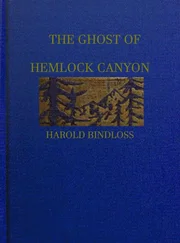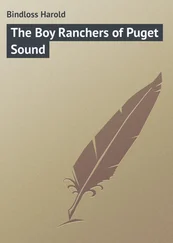Harold Bindloss - The Impostor
Здесь есть возможность читать онлайн «Harold Bindloss - The Impostor» — ознакомительный отрывок электронной книги совершенно бесплатно, а после прочтения отрывка купить полную версию. В некоторых случаях можно слушать аудио, скачать через торрент в формате fb2 и присутствует краткое содержание. Жанр: foreign_prose, на английском языке. Описание произведения, (предисловие) а так же отзывы посетителей доступны на портале библиотеки ЛибКат.
- Название:The Impostor
- Автор:
- Жанр:
- Год:неизвестен
- ISBN:нет данных
- Рейтинг книги:4 / 5. Голосов: 1
-
Избранное:Добавить в избранное
- Отзывы:
-
Ваша оценка:
- 80
- 1
- 2
- 3
- 4
- 5
The Impostor: краткое содержание, описание и аннотация
Предлагаем к чтению аннотацию, описание, краткое содержание или предисловие (зависит от того, что написал сам автор книги «The Impostor»). Если вы не нашли необходимую информацию о книге — напишите в комментариях, мы постараемся отыскать её.
The Impostor — читать онлайн ознакомительный отрывок
Ниже представлен текст книги, разбитый по страницам. Система сохранения места последней прочитанной страницы, позволяет с удобством читать онлайн бесплатно книгу «The Impostor», без необходимости каждый раз заново искать на чём Вы остановились. Поставьте закладку, и сможете в любой момент перейти на страницу, на которой закончили чтение.
Интервал:
Закладка:
“I’ve sent one of the boys to Graham’s for a wagon,” said the Sergeant. “You saw the man who fired at him?”
“Yes, sir,” said Trooper Payne.
“You knew him?” and there was a ring in the Sergeant’s voice.
“Yes, sir,” said the trooper. “At least he was riding Witham’s horse, and had on the old, long coat of his.”
Sergeant Stimson nodded, and pointed to the weapon lying with blackened muzzle at his feet. “And I think you could recognize that rifle? There’s F. Witham cut on the stock of it.”
Payne said nothing, for the trooper signed to him.
“I fancy Shannon wants to talk to you,” he said.
The lad knelt down, slipped one arm about his comrade’s neck, and took the mittened hand in his own. Shannon smiled up at him feebly.
“Witham’s horse and his cap,” he said, and then stopped, gasping horribly.
“You will remember that, boys,” said the Sergeant.
Payne could say nothing. Trooper Shannon and he had ridden through icy blizzard and scorching heat together, and he felt his manhood melting as he looked down into his dimming eyes. There was a curious look in them which suggested a strenuous endeavour and an appeal, and the lips moved again.
“It was,” said Shannon, and moved his head a little on Payne’s arm, apparently in an agony of effort.
Then the birches roared about them, and drowned the feeble utterance, while, when the gust passed, all three, who had not heard what preceded it, caught only one word – “Witham.”
Trooper Shannon’s eyes closed, and his head fell back, while the snow beat softly in to his upturned face, and there was a very impressive silence, intensified by the moaning of the wind, until the rattle of wheels came faintly down the trail.
CHAPTER V – MISS BARRINGTON COMES HOME
The long train was slackening speed and two whistles rang shrilly through the roar of wheels when Miss Barrington laid down the book with which she had beguiled her journey of fifteen hundred miles, and rose from her seat in a corner of the big first-class car. The car was sumptuously upholstered, and its decorations tasteful as well as lavish, but just then it held no other passenger, and Miss Barrington smiled curiously as she stood, swaying a little, in front of the mirror at one end of it, wrapping her furs about her. There was, however, a faint suggestion of regret in the smile, and the girl’s eyes grew grave again, for the soft cushions, dainty curtains, gleaming gold and nickel, and equable temperature formed a part of the sheltered life she was about to leave behind her, and there would, she knew, be a difference in the future. Still, she laughed again as, drawing a little fur cap well down upon her broad, white forehead, she nodded at her own reflection.
“One cannot have everything, and you might have stayed there and revelled in civilization if you had liked,” she said.
Crossing to the door of the portico she stood a moment with fingers on its handle, and once more looked about her. The car was very cosy, and Maud Barrington had all the average young woman’s appreciation of the smoother side of life, although she had also the capacity, which is by no means so common, for extracting the most it had to give from the opposite one. Still, it was with a faint regret she prepared to complete what had been a deed of renunciation. Montreal, with its gaieties and luxuries, had not seemed so very far away while she was carried West amid all the comforts artizans who were also artists could provide for the traveller, but once that door closed behind her she would be cut adrift from it all, and left face to face with the simple, strenuous life of the prairie.
Maud Barrington had, however, made her mind up some weeks ago; and when the lock closed with a little clack that seemed to emphasize the fact that the door was shut, she had shaken the memories from her, and was quietly prepared to look forward instead of back. It also needed some little courage, for, as she stood with the furs fluttering about her on the lurching platform, the cold went through her like a knife, and the roofs of the little prairie town rose up above the willows the train was now crawling through. The odours that greeted her nostrils were the reverse of pleasant, and glancing down with the faintest shiver of disgust, her eyes rested on the litter of empty cans, discarded garments, and other even more unsightly things which are usually dumped in the handiest bluff by the citizens of a springing Western town. They have, for the most part, but little appreciation of the picturesque, and it would take a good deal to affect their health.
Then the dwarfed trees opened out, and flanked by two huge wheat elevators and a great water tank, the prairie city stood revealed. It was crude and repellent, devoid of anything that could please the most lenient eye, for the bare frame houses rose with their rough boarding weathered and cracked by frost and sun, hideous almost in their simplicity, from the white prairie. Paint was apparently an unknown luxury, and pavement there was none, though a rude plank platform straggled some distance above the ground down either side of the street, so that the citizens might not sink knee-deep in the mire of the spring thawing. Here and there a dilapidated wagon was drawn up in front of a store, but with a clanging of the big bell the locomotive rolled into the little station, and Maud Barrington looked down upon a group of silent men who had sauntered there to enjoy the one relaxation the desolate place afforded them.
There was very little in their appearance to attract the attention of a young woman of Miss Barrington’s upbringing. They had grave, bronzed faces, and wore, for the most part, old fur coats stained here and there with soil. Nor were their mittens and moccasins in good repair, but there was a curious steadiness in their gaze which vaguely suggested the slow, stubborn courage that upheld them through the strenuous effort and grim self-denial of their toilsome lives. They were small wheat-growers who had driven in to purchase provisions or inquire the price of grain, and here and there a mittened hand was raised to a well-worn cap, for most of them recognized Miss Barrington of Silverdale Grange. She returned their greetings graciously, and then swung herself from the platform, with a smile in her eyes as a man came hastily and yet, as it were, with a certain deliberation in her direction.
He was elderly, but held himself erect, while his furs, which were good, fitted him in a fashion which suggested a uniform. He also wore boots which reached half-way to the knee, and were presumably lined to resist the prairie cold, which few men at that season would do, and scarcely a speck of dust marred their lustrous exterior, while as much of his face as was visible beneath the great fur cap was lean and commanding. Its salient features were the keen and somewhat imperious grey eyes and long, straight nose, while something in the squareness of the man’s shoulders and his pose set him apart from the prairie farmers and suggested the cavalry officer. He was, in fact, Colonel Barrington, founder and autocratic ruler of the English community of Silverdale, and had been awaiting his niece somewhat impatiently. Colonel Barrington was invariably punctual, and resented the fact that the train had come in an hour later than it should have done.
“So you have come back to us. We have been longing for you, my dear,” he said. “I don’t know what we should have done had they kept you in Montreal altogether.”
Maud Barrington smiled, though there was a brightness in her eyes and a faint warmth in her cheek, for the sincerity of her uncle’s welcome was evident.
“Yes,” she said, “I have come back. It was very pleasant in the city, and they were all kind to me; but I think, henceforward, I would sooner stay with you on the prairie.”
Читать дальшеИнтервал:
Закладка:
Похожие книги на «The Impostor»
Представляем Вашему вниманию похожие книги на «The Impostor» списком для выбора. Мы отобрали схожую по названию и смыслу литературу в надежде предоставить читателям больше вариантов отыскать новые, интересные, ещё непрочитанные произведения.
Обсуждение, отзывы о книге «The Impostor» и просто собственные мнения читателей. Оставьте ваши комментарии, напишите, что Вы думаете о произведении, его смысле или главных героях. Укажите что конкретно понравилось, а что нет, и почему Вы так считаете.












